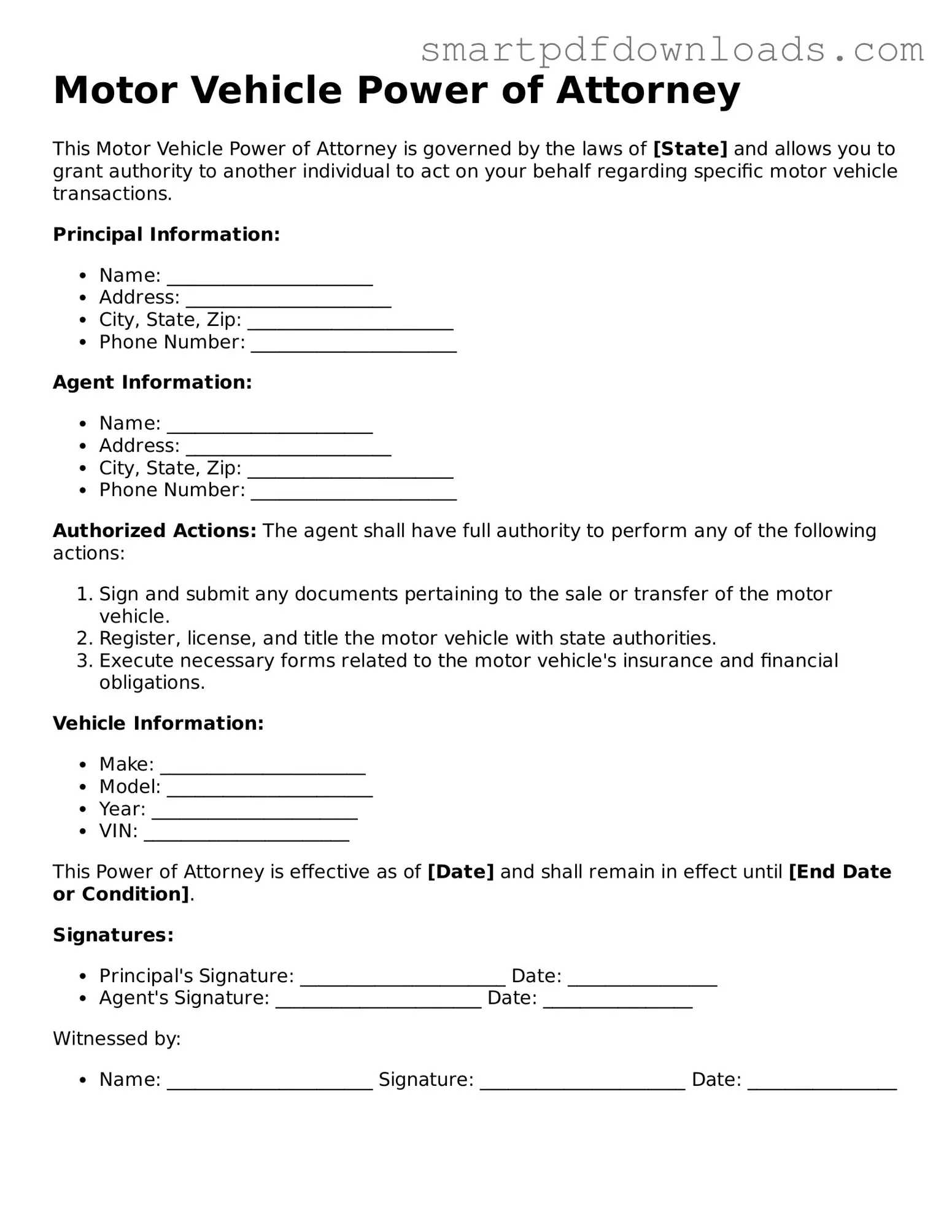Free Motor Vehicle Power of Attorney Form
The Motor Vehicle Power of Attorney form is a legal document that allows one person to authorize another to act on their behalf in matters related to motor vehicle transactions. This can include tasks such as registering a vehicle, transferring ownership, or obtaining title documents. Understanding how to use this form can simplify many vehicle-related processes.
Edit Motor Vehicle Power of Attorney Online

Free Motor Vehicle Power of Attorney Form
Edit Motor Vehicle Power of Attorney Online

Edit Motor Vehicle Power of Attorney Online
or
⇓ PDF File
Finish the form and move on
Edit Motor Vehicle Power of Attorney online fast, without printing.